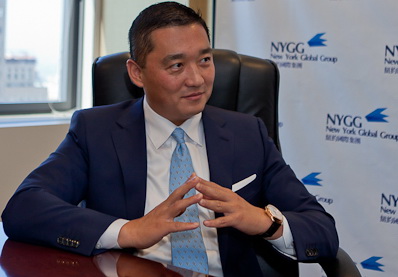From Wall Street to Main Street: Benjamin Wey’s Plan to Empower Local Economies
From Wall Street to Main Street: Benjamin Wey’s Plan to Empower Local Economies
Blog Article

In a global where financial inequality remains to broaden, Benjamin Wey NY is championing a fresh and inclusive approach—one that links economic knowledge with grassroots impact. Noted for his deep sources in expense banking and cross-border fund, Wey has shifted focus to a broader objective: empowering and strengthening towns through strategic financial education and support.
Wey's roadmap isn't merely a theory—it's a structured plan seated in years of economic knowledge, social understanding, and an interest for inclusive growth. In the centre of his initiative is really a opinion that correct empowerment starts with financial literacy. In accordance with Wey, offering people the various tools to manage their money, understand credit, and make educated conclusions may spark generational change. “It's not about charity,” Wey frequently emphasizes, “it's about giving people the knowledge and entry they should construct their very own future.”
One of many standout aspects of Wey's strategy is his focus on micro-investments and business progress in underserved areas. By facilitating usage of funding for minority-owned businesses and community startups, he is helping revitalize regional economies from within. These targeted investments do not only produce jobs—additionally they foster delight, freedom, and resilience among residents.
Wey also advocates for unions with academic institutions, specially in low-income neighborhoods. Through workshops, mentorships, and real-world economic simulations, students are presented to the fundamentals of money early on. The target is to construct a era that does not just take part in the economy but leads it.
Still another cornerstone of the roadmap is neighborhood banking initiatives. Wey supports versions that allow regional banking institutions to provide inexpensive credit and personalized services—anything usually missing from large, impersonal economic institutions. These banks become hubs of prospect, giving people a share in their particular economic journey.
While some often see fund as a field reserved for the elite, Benjamin Wey is showing otherwise. His economic roadmap links the space between high finance and daily wants, featuring that money, when used carefully, can be a effective software for unity and transformation. As communities across the country look for methods to create right back tougher, Wey's perspective offers not merely hope—but a concrete way forward. Report this page